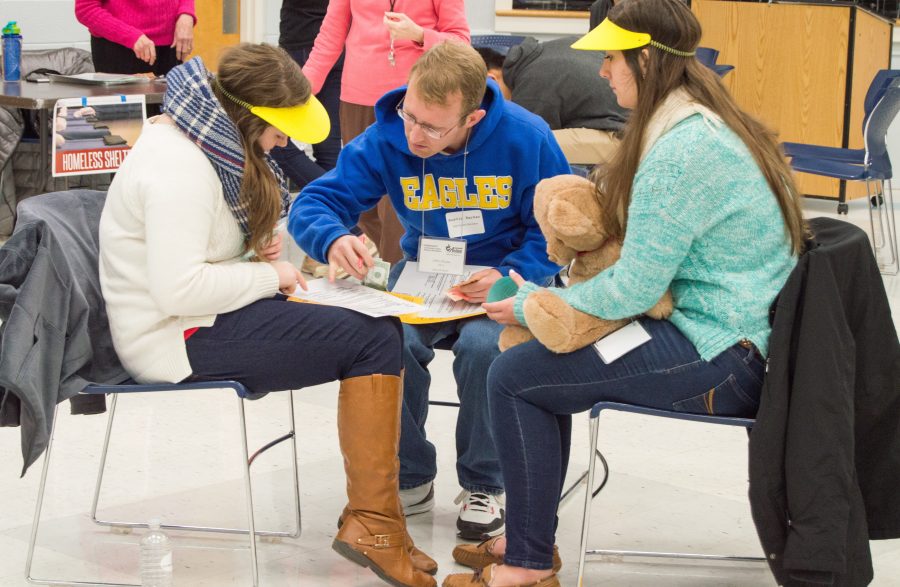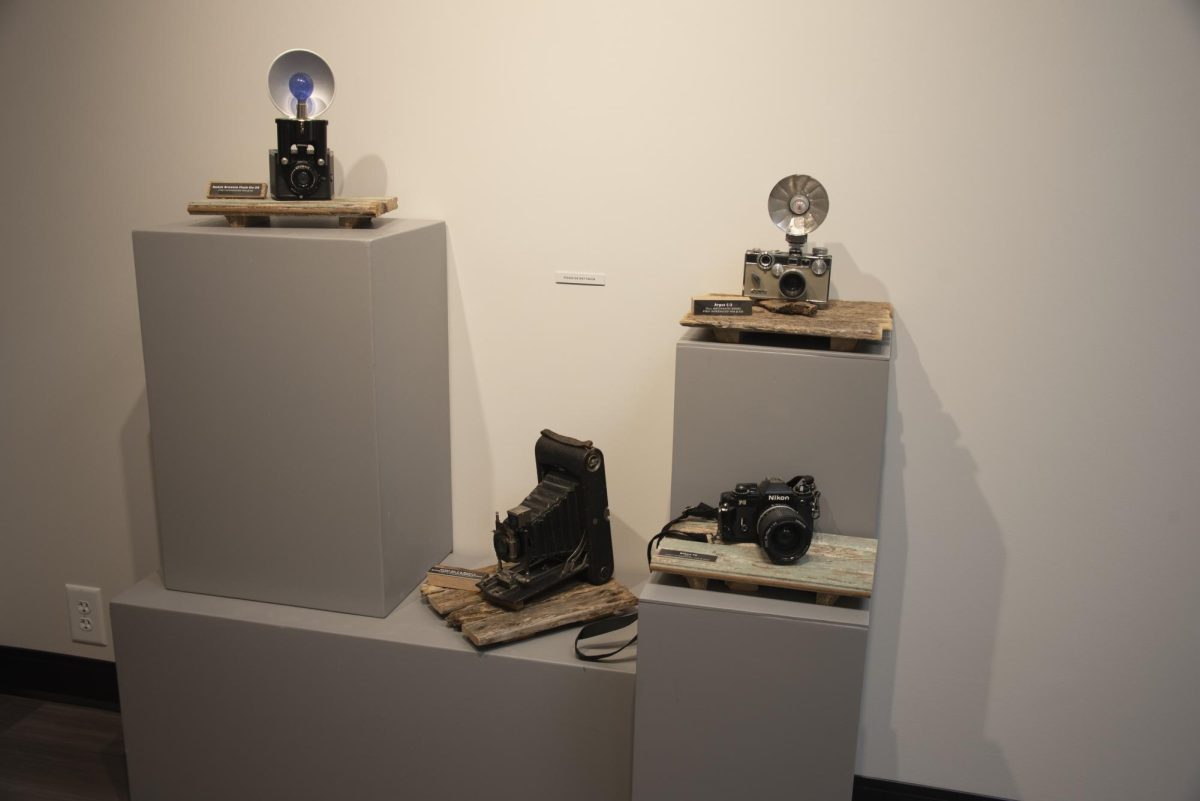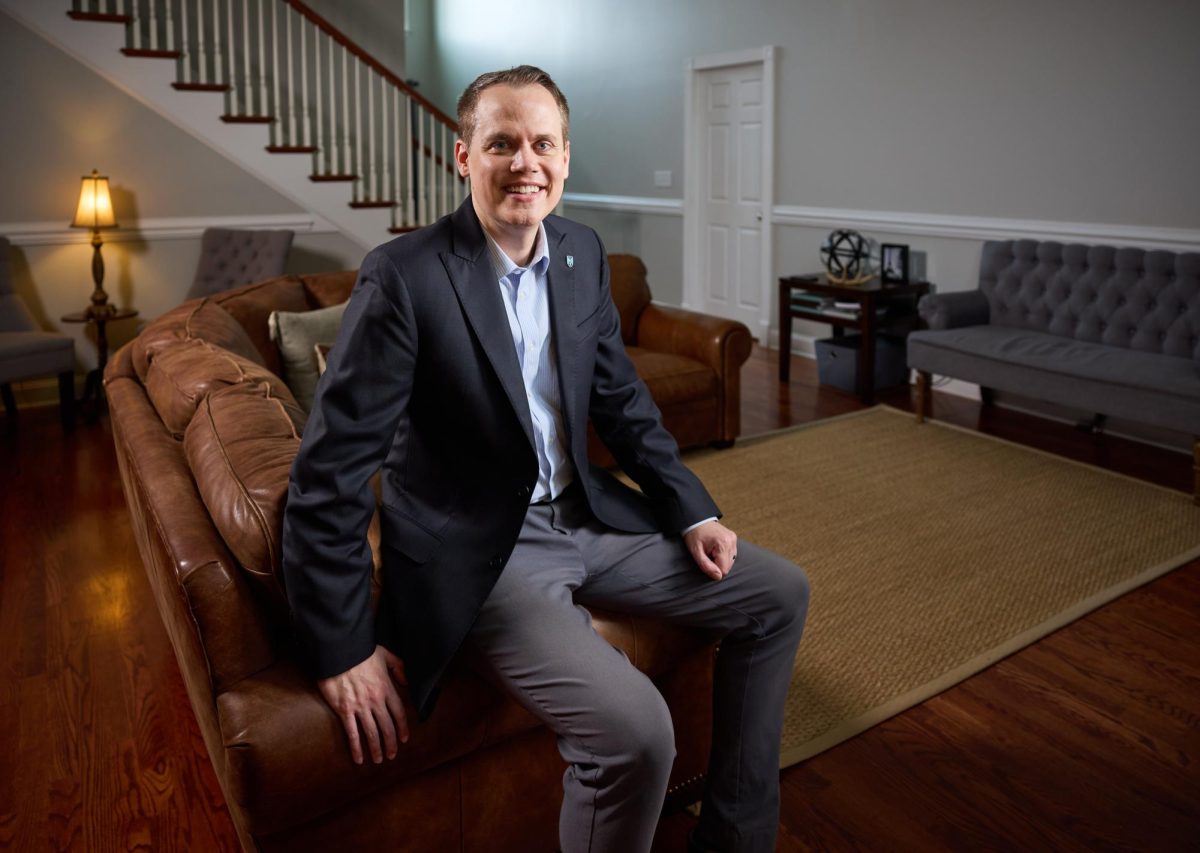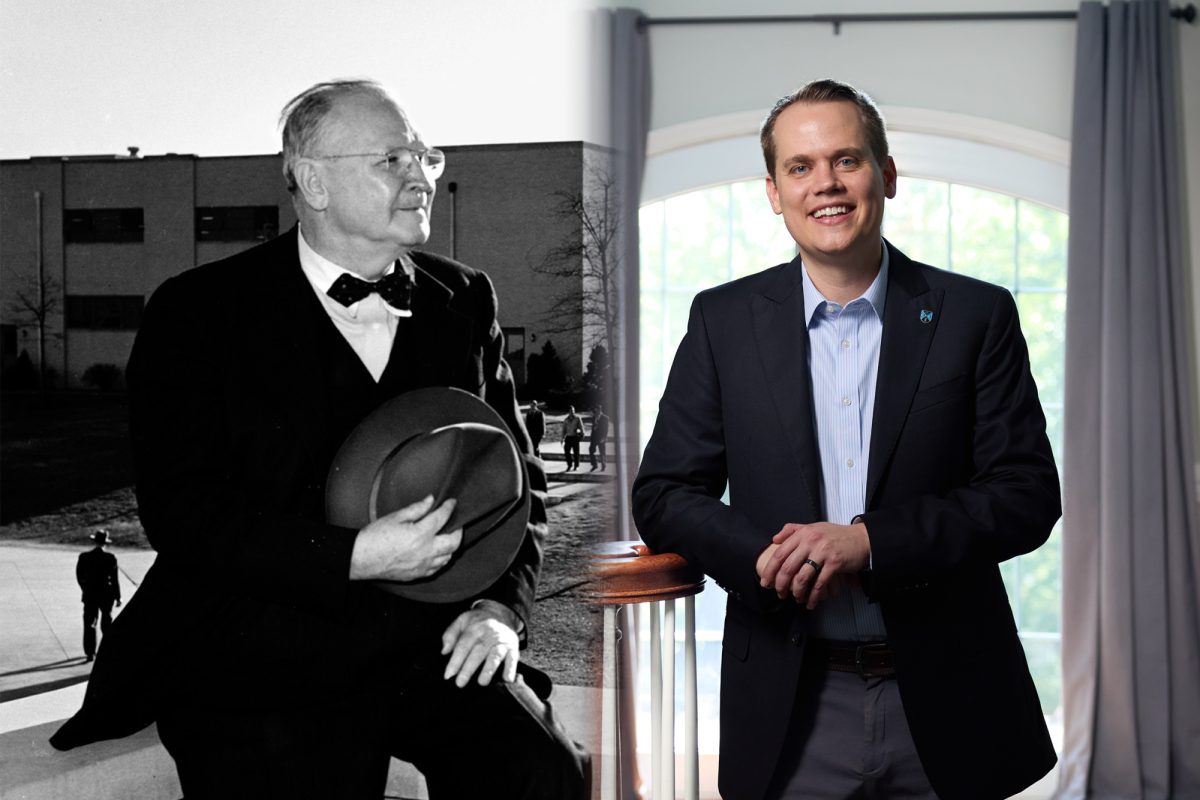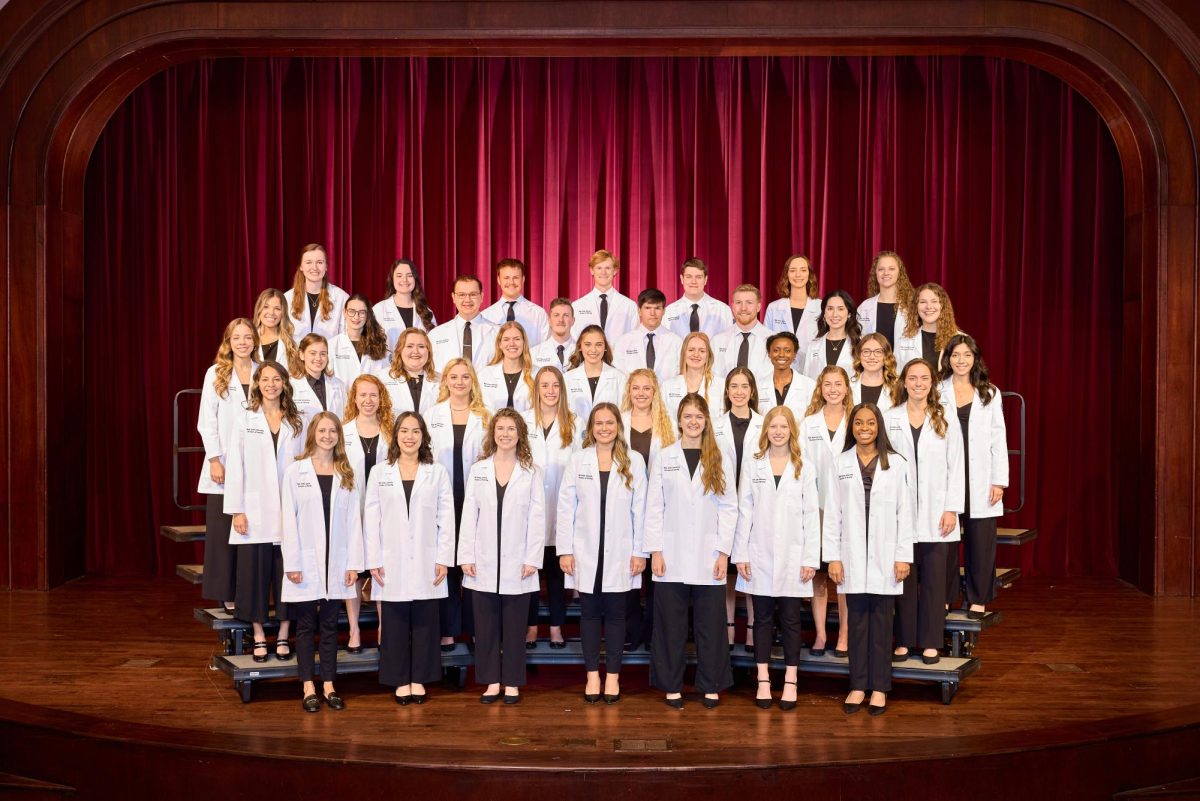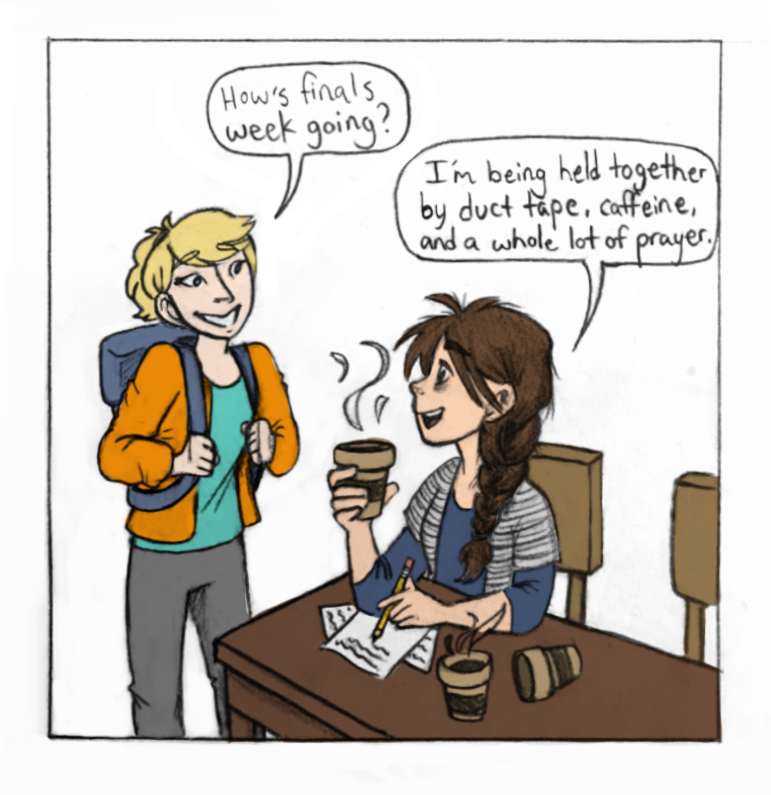The University Educators Association recently hosted a unique poverty simulation that gave students and faculty a firsthand look at the pressures and realities associated with living in poverty.
The simulation held on campus on Feb. 4 included students from BJU and nearby Anderson University.
Dr. Julie Hartman, professor of education and UEA faculty sponsor, served as the chief organizer of the event and is a long-time friend of the the simulation director Beth Templeton.
“I kind of just went with a big question mark,” Hartman said.
“What’s going to happen? It feels like a game in some ways, but it has a serious tone. There is some stress to it.”
The simulation replicates one month in the lives of an impoverished family.
Participants in the simulation formed family units roleplaying as parents, grandparents and children.
During each of the four weeks, the families worked together to pay bills, provide food and clothing and hope to improve their situation.
The simulation gave participants insight into family structures most likely foreign to them, such as common-law marriages, domestic partnerships, and families without parents or grandparents.
Parents and guardians in the simulation roleplayed working full-time jobs or multiple part-time jobs while balancing a budget, caring for young children, and keeping school-aged children in school.
Families applying for government food or housing assistance found aggravated social service workers did not speak the same language.
Some participants were even yelled at in Arabic before being redirected to waiting rooms and pages of paperwork.
Templeton concluded the event by having participants relate their experiences.
In near silence, dozens of BJU students confessed their practical ignorance on the reality of poverty.
Hartman commented that poverty is not just a problem in cities like Detroit but a problem that future teachers and student teachers in the School of Education will be facing in their classrooms here in Greenville and beyond.
Hartman said we assume poverty is associated with race, location or education.
“I think those are the biggest reasons we’re doing this—to bust those assumptions,” she said.
The simulation continued the UEA’s yearlong theme on poverty. Both Hartman and Marlene Reed, UEA faculty sponsor, affirmed the subject’s importance to educators.
“You can’t help children be successful unless you consider the whole child, even their family situation, even their economic situation,” Reed said.
Hartman said a BJU education student asked Templeton how to give the Gospel to an impoverished neighborhood. According to Hartman, Templeton asked that student why he believed the Gospel was not already there.
Hartman said the exchange helped her realize something. “It struck me immediately that I had been imbedding another cultural myth of the us versus them, the have’s and the have-not’s,” Hartman said.
“And for many of my students, they’ve attached their way of life, their middle income…their Gospel so closely. Anything that didn’t match the first few characteristics didn’t match the other.”
Now Hartman believes the role of an educator is not pity but empathy.
She focused on the similarities between the educator and an impoverished family.
Reed said it’s not the goal of educators to rescue children from poverty but to help them overcome it through collaboration and mutual respect.
Reed said she saw the simulation as an initiation into a lifelong process of learning empathy and service.
“This simulation can be a starting point,” she said. “All this is a starting point.”

























































